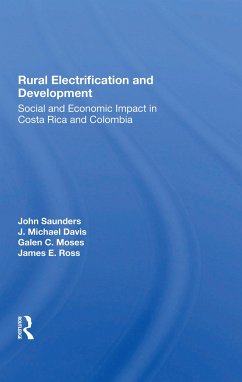"This assessment of the consequences of rural electrification in developing areas, covers projects in two Latin American countries. In one of these electricity is supplied by a cooperative, in the other by a state-owned company. The authors examine a wide range of variables and find that only living standard and occupational status had a consistent positive association with electricity use. The cooperative had little, if any, significance for its members, aside from its function as an energy supplier. Household electricity consumption levels were low, rarely exceeding 100 kilowatts per month and largely limited to use for lighting and ironing. Farm consumption was minimal. The authors discuss energy costs at the household level and look at alternative energy sources, such as privately operated diesel generators, for businesses and industries. Consideration is given to the relationship between electricity and infrastructure development. The study is unique in that it focuses on both social and economic impacts of rural electrification and examines policy implications from both social-benefits and economic-benefits approaches."
Hinweis: Dieser Artikel kann nur an eine deutsche Lieferadresse ausgeliefert werden.
Hinweis: Dieser Artikel kann nur an eine deutsche Lieferadresse ausgeliefert werden.








